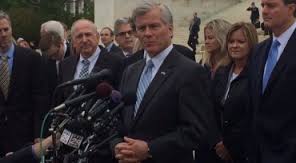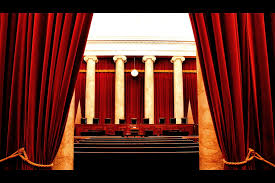The FCPA Implications of the Supreme Court’s McDonnell Decision – A Mountain Out of a Molehill?
 The Supreme Court’s decision in the McDonnell case was expected. It was evident that the Supreme Court was going to reverse the convictions when it granted a stay of McDonnell’s sentence and agreed to hear the case.
The Supreme Court’s decision in the McDonnell case was expected. It was evident that the Supreme Court was going to reverse the convictions when it granted a stay of McDonnell’s sentence and agreed to hear the case.
Sometimes we all suffer from FCPA myopia and see the world only through the FCPA lens. The McDonnell case has very little that is directly applicable to the FCPA statute.
First, the FCPA does not depend on a definition of “official act,” which was at issue in the McDonnell case.
Second, the FCPA is much broader than the domestic bribery statute in that it specifically prohibits giving something of value to a foreign official to induce the official “to use his influence . . . to affect or influence any act or decision of [a] government or instrumentality.”
Looking at the facts of the McDonnell case, under the domestic bribery statute, providing gifts, interest-free loans, and other “things of value” to a Virginia governor in exchange for introductions, or referrals, or even prime access to such introductions or referrals, does not by itself violate Section 201 of the US Code for bribery under the Supreme Court’s reading of the term “official act” of the statute. If, on the other hand, Governor McDonnell ordered state officials to conduct research on the product at issue in the McDonnell case, or made, directly or indirectly, some other decision to benefit the lobbyist at issue, then Section 201 would have been violated.
Taking the McDonnell facts and putting them into a foreign government official’s context, the bribe giver, and not the taker (e.g. Governor McDonnell) would have violated the FCPA because he would have given the gifts with the intent to “affect or influence” any act or decision of the foreign government.
Putting aside the differences between the domestic and the foreign bribery statutes, the real import of the McDonnell decision by the Supreme Court is a continuing trimming and rejection of prosecutorial discretion. At heart, the Supreme Court is expressing its concern that prosecutors cannot be trusted to exercise appropriate discretion when enforcing broadly-worded statutes.
In the Enron Skilling decision, the Court cut back drastically on the “honest services” fraud interpretation applied by prosecutors and the lower courts. Now, in the McDonnell case, the Court has restricted the applicability of the domestic bribery statute to permit what it calls “tawdry” conduct but not prohibit such conduct.
Prosecutors are person non grata right now at the Supreme Court. There is no question that broad criminal statutes are in disfavor these days, reflecting Congressional and policy concerns about over-criminalization. However, the Supreme Court and Congress have to make sure that their concerns are expressed in the proper forum.
It is a little unseemly for the Supreme Court to authorize what it candidly concedes was “tawdry” conduct by Governor McDonnell based on a constrained interpretation of the domestic bribery statute. Congress may have to  respond to these concerns but from past personal experience Congress is usually reluctant to amend or clarify public corruption statutes for fear of expanding their own liability. As a consequence, we are likely to see further challenges to criminal statutes based on expansive readings of well-established crimes.
respond to these concerns but from past personal experience Congress is usually reluctant to amend or clarify public corruption statutes for fear of expanding their own liability. As a consequence, we are likely to see further challenges to criminal statutes based on expansive readings of well-established crimes.
In the FCPA context, given the lack of litigation and challenge to Justice Department interpretations and enforcement positions, we are unlikely to see any Supreme Court consideration of the breadth of the FCPA for years to come. If the Yates Memorandum results in more individual FCPA prosecutions, this situation may change but it will take years for a case to reach the Supreme Court. Until then, the Justice Department continues to set an aggressive agenda, and it is unlikely to change for the foreseeable years.















